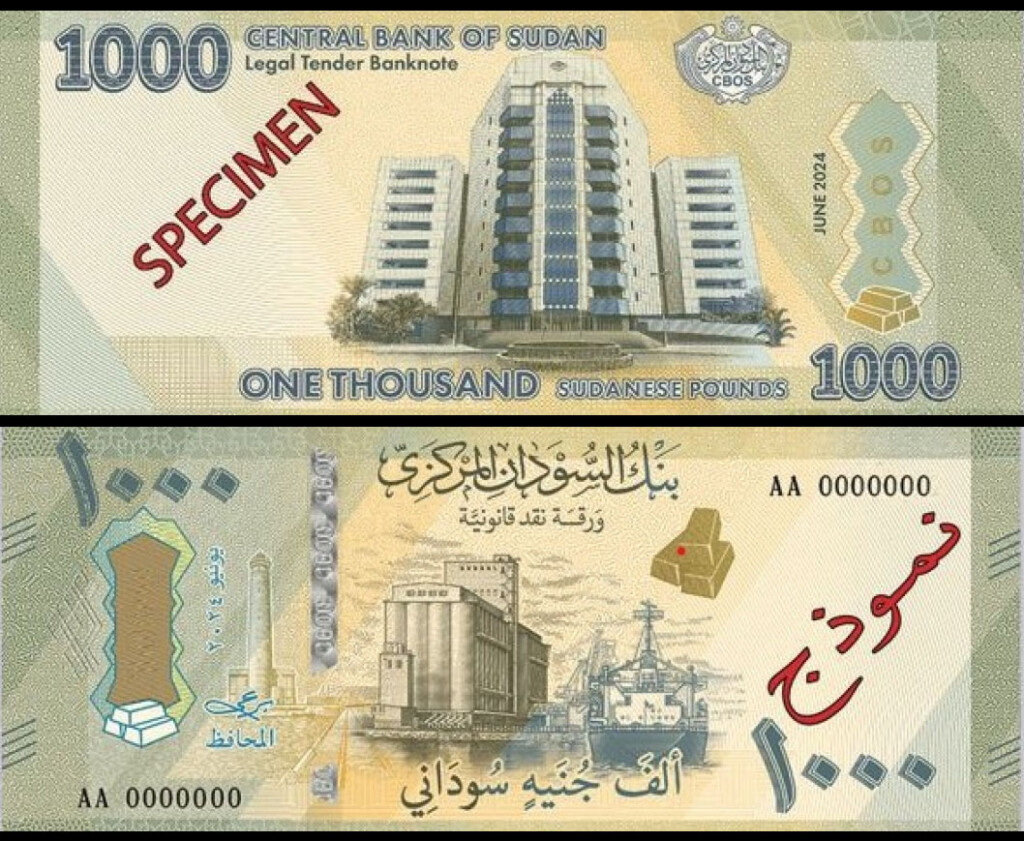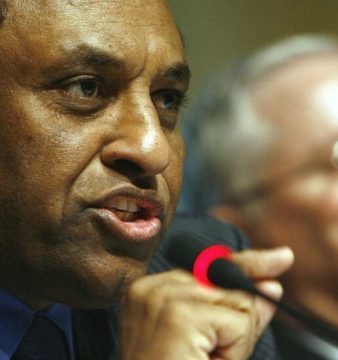Sudan: A ‘Two-Currency Country’?

The Central Bank of Sudan (CBOS) has began circulating new currency, a SDG1,000 note, on 10 December 2024 based on the recommendation of economic and political experts to curb the shadow economy and combating counterfeiting, as a result of the ongoing war in the country between the Sudanese Armed Forces (SAF) and the paramilitary Rapid Support Forces (RSF) that has been raging since 15 April 2023.
The process has been made possible by a consensus between the Ministry of Finance and CBOS. The new SDG1,000 note was issued in June 2024 and introduced in November 2024, a move rejected by the RSF as a step towards the division of the country. Sudan is potentially becoming a ‘two-currency country’, raising alarming concerns about a stark economic divide between regions controlled by opposing forces.
The obverse side features images of Port Sudan, a grain silo, and gold bullion, with the denomination displayed in Arabic numerals at the top left and bottom right, and the date of issue, June 2024. The reverse side depicts CBOS’s headquarters and presents the denomination in English, ‘One Thousand Sudanese Pounds’. It is in the shades of yellow and green with the watermark showing a full-fledged falcon.
The banknote incorporates advanced security features, including a dynamic security strip visible upon tilting. The note carries the specifications and security marks related to the dimensions of the note at 158 by 70 mm.
The new currency has been circulated in the seven states considered safe out of the 18 that make up the country. These states are under the control of the SAF and have ceased accepting old SDG500 and SDG1,000 notes. Banks in army-controlled regions report overwhelming crowds as citizens rush to deposit old notes, subject to a daily withdrawal limit of 200,000 pounds. In the 11 states controlled wholly or partially by the RSF face severe banking restrictions, with the RSF explicitly prohibiting new currency circulation in their territories.
According to CBOS, the exchange deadline is on 23 December 2024, which leaves civilians in RSF-controlled areas mounting anxiety over their savings, complicated by non-functioning banks, poor communication networks and significant security risks associated with cross-state travel carrying cash.
According to experts, the decision to replace the old banknotes is a necessary step to stabilise the economy. In addition, it seeks to improve confidence in the banking system by encouraging citizens to open accounts and conduct transactions through them. It also aims to tackle the parallel market in order to reduce illegal activities that rely on cash outside official state channels. However, some argue that it could aggravate inflation and that many bank branches have halted operations.
According to new sources, the war in Sudan has led to the closure of 70% of bank branches in combat zones. It is estimated that around 90% of the money supply, equivalent to GBP900 billion, is circulating outside the banking system. In addition, the exchange rate of the Sudanese pound has plummeted since the war began in April 2023, with the US dollar reaching GBP2,300, compared to GBP600 pounds pre-war.
According to the UN, the war Sudan is the ‘worst humanitarian nightmares in recent history‘, killing tens of thousands of people, with estimates ranging from 20,000 to 150,000 killed, and 11 million people displaced. In addition, Sudan is now the world’s largest displacement crisis.
Interbank transfers
Electronic Banking Services (EBS), Sudan’s national payment systems operator, has restored interbank transfer services on 15 December 2024, after a 20-month suspension due to the ongoing war in Sudan.
EBS now allows secure transfers using Basic Bank Account Numbers (BBAN) via mobile applications. Since the war began, EBS could not access systems at the CBOS. The service allows customers of local banks to quickly transfer money via mobile applications, providing a more efficient banking experience.




